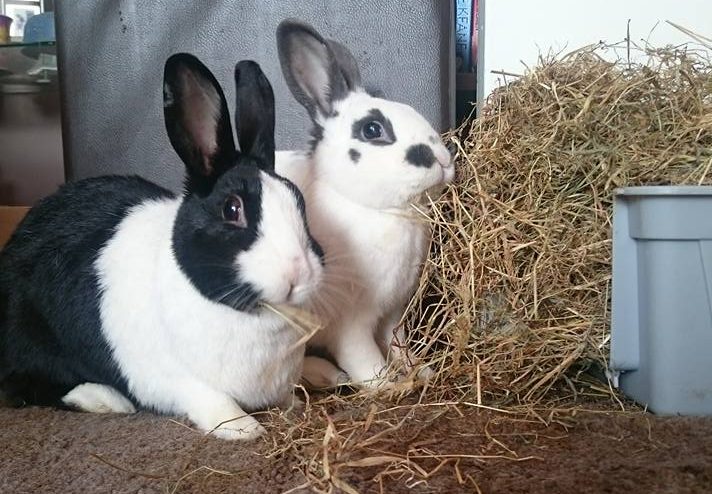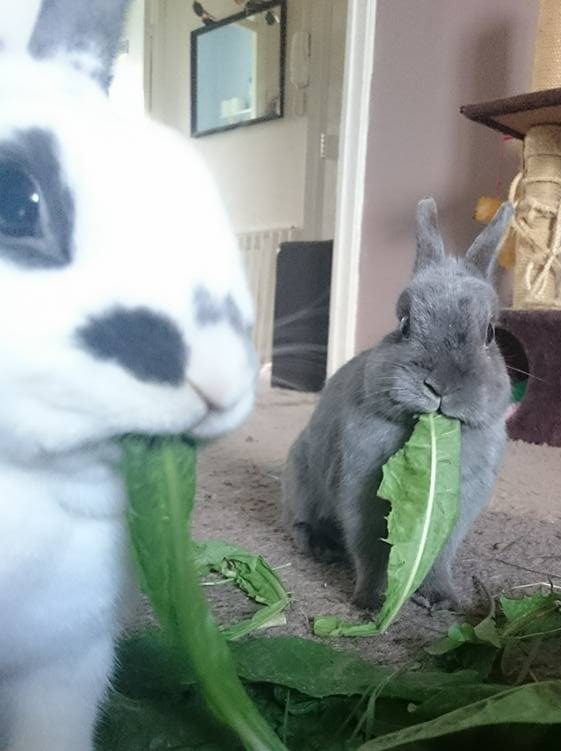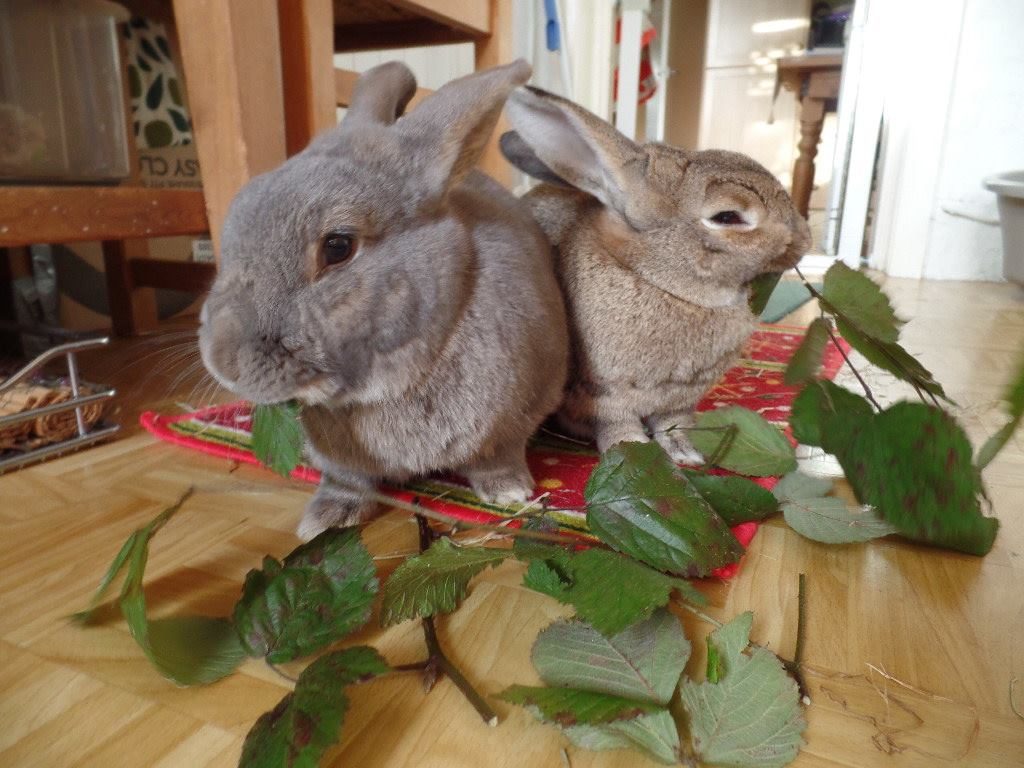A rabbit’s diet should mimic that of a wild rabbit’s as much as possible and for your rabbits to be fit and healthy, it’s important to get the diet right as it plays such a huge part in their health. So, what should your rabbit eat?
Hay
Did you know that 80% of your rabbit’s diet should be hay? Hay is really important for bunnies and they need access to hay at all times. There are lots of different types of hay you can give, and you may need to try a few to find out what type your rabbit prefers. Some hay from stores can be dry and dusty, and your rabbit will be happier and healthier with higher quality hay.
Hay is important because it;
- Helps grind the teeth down. Rabbit’s teeth will continuously grow and if they don’t wear them down, they can cause pain, discomfort and even stop them from eating. Overgrown teeth can cause abscesses, cut the mouth and can cause problems with their eyes too! Eating hay causes the rabbit’s mouth to move from side to side, which grinds down the teeth.
- It keeps their gut strong. Hay is made up of long fibres and the passing of food can help to clear the build up of fur and fibres because blockages can be fatal to rabbits.
- It keeps their guts moving. Unlike dogs and cats, rabbit’s need to have food passing through their digestive tract at all times. If not enough food is passing through, the intestine function will slow down and it can be fatal. This is called Gastrointestinal Stasis (GI for short) and when food is not passing through as quickly as it should, the food can ferment in the gut, causing a buildup or gas which is very painful for your rabbit. The contents of the gut can become dehydrated and compacted, meaning they are unable to move and cause a blockage. Symptoms of GI include loss of appetite, lethargy and not passing faeces. GI can be fatal and rabbit’s with suspected GI should be taken to a vet immediately.
A few brands of hay mixed together will help give your bunnies variety, assist in wearing their teeth down and ensures food is passing through them at all times, which is vital for rabbits! Popular types to feed are Timothy hay and oat hay.
Be careful with alfalfa hay as this is high in calcium. It’s great for growing baby bunnies, but not so much for adult rabbits.
Have a look at different types of hay here.

Pellets
Pellets are better than muesli type food as they prevent selective feeding. This is when rabbits eat the bits they like the most, leaving the rest which means they won’t be having a complete diet. Lots of muesli mixes are high in sugar and starch too, which is bad for their teeth and can cause them to become overweight.
Pellets, such as Science Selective and Burgess Excel may be initially more costly than museli type food, however your rabbit will only need a small amount per day (check the bag for the exact amount as rabbits come in all different shapes, sizes and have varying activity levels).
If you have baby rabbits, they will need a junior food. Luckily Science Selective and Burgess Excel both make junior food which will make the transition to their adult food easier.
Fresh food
Rabbits can also eat vegetables, fruits and herbs, however, when feeding new items, feed them a small amount, to begin with.
Safe vegetables
- Artichoke leaves
- Asparagus
- Baby Sweetcorn (but avoid full-size sweetcorn)
- Beetroot (do not feed too much as it can cause gas)
- Broccoli (do not feed too much as it can cause gas)
- Brussel Sprouts (do not feed too much as it can cause gas)
- Cabbage (do not feed too much as it can cause gas)
- Carrots and carrot tops (do not feed too often as they are high in sugar)
- Cauliflower
- Celeriac
- Celery leaves
- Chicory
- Courgette
- Cucumber
- Curly Kale
- Fennel
- Green beans
- Kohlrabi
- Peas
- Peppers
- Pumpkin
- Radish Tops (do not feed too much as it can cause gas)
- Rocket
- Romaine lettuce
- Spinach
- Spring Greens
- Squash
- Swede
- Turnip
- Watercress
Safe fruit
Be careful not to feed too much fruit and it should be given as a treat. This is because it can cause stomach upset and it is high in natural sugar.
- Apple (avoid feeding the core and pips)
- Apricot
- Banana
- Blackberries
- Blueberries
- Cherries (avoid feeding the pits and plant)
- Grapes
- Kiwi Fruit
- Mango
- Melon
- Nectarines
- Papaya
- Peaches
- Pears
- Pineapple
- Plums
- Raspberries
- Strawberries
- Tomatoes (Avoid feeding the leaves)
Safe herbs
- Basil
- Coriander
- Dill
- Mint
- Parsley
- Oregano
- Rosemary
- Sage
- Thyme

Safe wild plants
Wild plants are a great supplement to your rabbit’s diet, but avoid picking them from roadsides and areas where pesticides are used. Always wash them before feeding them to your rabbits.
- Borage
- Calendula
- Camomile
- Chickweed
- Clover
- Coltsfoot
- Comfrey
- Dandelion
- Goosegrass
- Lavender
- Mallow
- Nettle
- Nasturtium
- Shepherd’s purse
- Sow Thistle
- Plantain
- Yarrow
Remember to keep your rabbit’s diet varied to keep them in good health.

